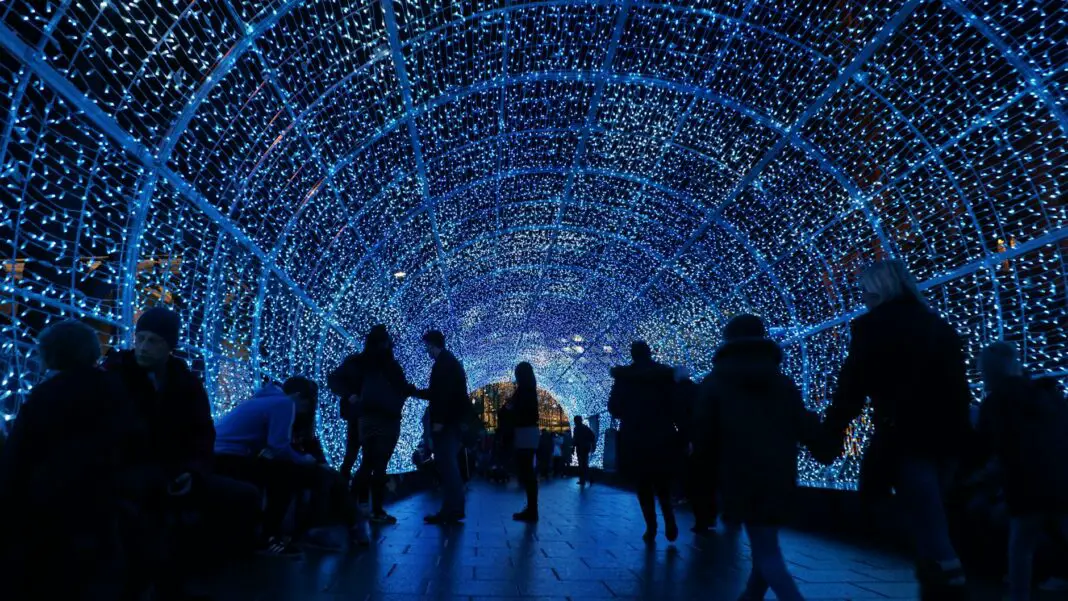- Introduction
- Impact of Travel on Politics
- Popular Destinations in Politics
- Cultural Influences on Politics
- Final Thoughts on Political Landscapes and Travel
- Frequently Asked Questions
In today’s interconnected world, it’s fascinating how holiday destinations can sometimes become hotbeds of political influence and discussion. Each year, certain locations draw significant attention, not just for their stunning vistas, but also for their role in shaping dialogues that resonate across continents. It is truly remarkable to observe how a simple vacation can transcend leisure to become a catalyst for change in political landscapes worldwide.
This blog post dives into the symbiotic relationship between travel and the political arena, highlighting specific destinations. We’ll explore how these places impact contemporary issues, provide essential platforms for discussions, and perhaps even redefine policies and ideologies.
Traveling can be much more than just indulging in scenic surroundings or exotic foods. It is an opportunity for individuals to expand their horizons, interact with diverse cultures, and engage in discussions that challenge the status quo. As travelers navigate through international venues, they often foster conversations that may ignite change back home. The spark from a casual chat at a café in Paris or a community event in Tbilisi can snowball into awareness campaigns, social movements, or even the rethinking of governmental policies.
For instance, attending a cultural festival in a foreign country can lead visitors to re-evaluate their viewpoints on social justice, equality, and governance. With the influence of social media, what starts as a personal experience often radiates outward, influencing public opinion and urging leaders to consider the voices of their constituents. Hence, a holiday destination, brimming with charm and beauty, can play a pivotal role in shaping today’s political landscape.
Some holiday destinations naturally embody a political fervor, attracting those eager to engage with ongoing discussions. The beaches of Bali are not merely a tropical paradise; they have become a meeting ground for global leaders, where negotiations unfold amid stunning sunsets. Similarly, cities like Washington D.C. and Brussels, brimming with historical significance, serve as melting pots of diplomacy and policy formulation.
Places hosting international summits frequently emerge as focal points where political agendas are presented and debated. The allure of these locations lies not just in tourism but also in their essential role as platforms for transformation. Visitors often leave inspired and equipped with the insight to make meaningful changes in their own communities.
Cultural experiences while traveling can shatter preconceptions and challenge oblivion. Individuals who immerse themselves in local traditions are often transformed by firsthand knowledge of diverse challenges faced by different societies. For instance, taking part in a community-driven conservation effort in Costa Rica may not only foster a deeper appreciation for the local environment but also trigger thoughts on global ecological policies.
Additionally, festivals filled with art, music, and local narratives serve as a backdrop for critical discussions about identity, race, and social justice. Engaging with local activists or cultural leaders during such events allows travelers to grasp the complexities of a region’s socio-political climate, inspiring new philosophies and a commitment to making necessary changes at home. Consequently, each cultural interaction creates ripples that can influence a broader political discourse, leading to significant progress.
The intricate web between travel and politics is undeniable, reminding us that each journey carries the potential for broader implications on society. As people traverse the globe, they encounter ideas and values that ignite passion and evoke the desire for change. Holiday destinations are not just places to unwind; they are dynamic arenas shaping ideologies and political narratives.
By embracing the experiences gleaned during travels, individuals can foster dialogues that flourish into movements capable of influencing policy decisions and societal norms. Consider the power of your next trip; it may carry more significance than mere sightseeing. With travel comes the responsibility and opportunity to comprehend the world and contribute to its development in impactful ways.
Q1: How can travel influence my views on politics?
A: Travel exposes individuals to diverse cultures and viewpoints, encouraging more informed opinions on various political issues. Engaging with locals can spark important conversations that broaden one’s perspective.
Q2: Are there specific destinations where politics and travel intersect more significantly?
A: Yes, cities known for international summits or political activism, such as Berlin, Washington D.C., and Geneva, often serve as hotspots for political discourse, providing unique experiences that intertwine leisure and social impact.
Q3: What resources can I utilize to learn more about the political significance of my travel destinations?
A: Engaging with travel blogs, documentaries, and local news sources can enrich your understanding of a region’s political landscape ahead of your visit. Additionally, participating in community tours or discussions can enhance this experience while traveling.
Image Credit: Pexels





